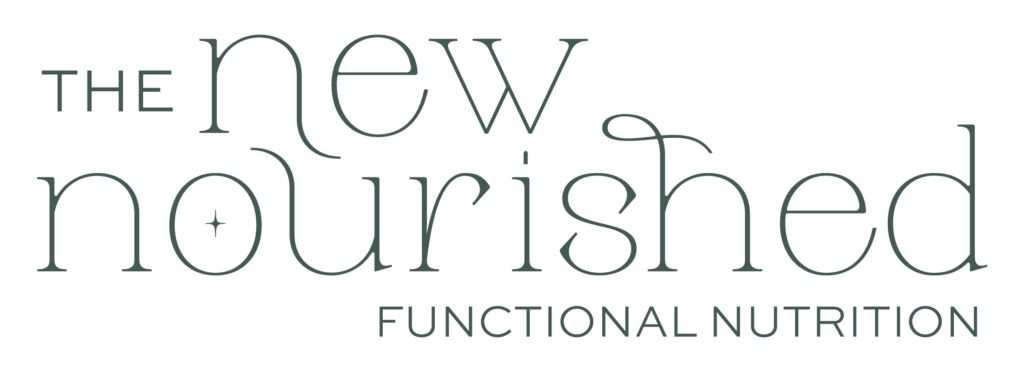As a women’s health dietitian, it’s always surprising to me how many people don’t know about the importance of fertility nutrition. If you are trying to conceive (TTC), there are so many things you can do with food to boost reproductive health, increase chances of conception and set the stage for a healthy pregnancy.
The Role of Nutrition in Fertility
Nutrition plays an important role in fertility as it can impact everything from egg quality to reproductive hormones. The food you eat not only provides specific nutrients that are necessary for a healthy reproduction (such as omega-3 fatty acids, antioxidants, iron and zinc), but is also an opportunity to optimize fertility through things like gut health and blood sugar balance.
An egg starts developing 90 days prior to ovulation and therefore is impacted by both diet and lifestyle during that time. That being said, it’s often recommended to start thinking about nutrition for fertility even a year prior to conception. This allows time to build up nutrient stores and prepare the body for a healthy pregnancy while also correcting any imbalances that might make getting pregnant more challenging.
You might be surprised to learn that fertility nutrition is less about restriction or avoiding things like gluten (unless you have a sensitivity!) and more about making sure you are consuming plenty of nutrient-dense foods!
5 Fertility-Boosting Foods to Add to Your Plate
1. Leafy Greens
Leafy greens are high in many nutrients, including folate, which is one of the more well-known nutrients important to fertility and pregnancy. Folate supports cervical health, egg quality and is essential for early fetal development. Greens are also rich in many other nutrients including vitamin C, vitamin K, magnesium and potassium. Bitter varieties of greens support healthy digestion and liver function both of which impact hormone health.

2. Fatty Fish
Fatty fish, such as salmon, sardines and mackerel, are high in omega-3s DHA and EPA which support egg quality and healthy menstrual cycles in addition to being anti-inflammatory. Seafood is also a good way to get fertility-supportive nutrients like iodine, copper, selenium, zinc, B12 and vitamin D.
It’s important to consider sourcing when choosing seafood due to the potential for contamination with heavy metals or other environmental toxins. Look for wild-caught options and buy from reputable sources when you can.
For fertility and overall hormone health, aim to have at least 2-3 servings of seafood per week, ideally favoring the varieties listed above.
Get in on the tinned fish trend: I love cooking with sardines from Fishwife! *20% off with link

3. Eggs
Not only are eggs a good way to get high quality protein, they are also a great source of essential fertility nutrients such as choline and DHA. Choline is very important for fetal brain development and isn’t found in high quantities in many foods (liver is another good source.) DHA is an omega-3 fatty acid that supports egg quality prior to conception and also impacts fetal brain development post-conception. Both these nutrients (and many others) are found in the yolk so make sure you are eating the whole egg.
Quality matters when it comes to maximizing nutrient content so, if budget allows, choose pasture-raised eggs over conventional.
4. Berries
One of the key goals of fertility nutrition is managing oxidative stress aka inflammation and including plenty of antioxidant rich foods like berries are a great way to do that. Berries are also a lower sugar fruit so they are a good option for maintaining blood sugar balance. Try them in this hormone balancing smoothie.
Recipe idea: Berry Tahini Smoothie
5. Bone Broth
A healthy gut is essential for optimal fertility as it allows for better nutrient absorption in addition to supporting hormone balance. Bone broth improves gut health by strengthening the gut lining and reducing inflammation. The amino acids glycine and glutamine, found in bone broth, also act as antioxidants and support liver detoxification.
Some of my favorite high-quality bone broths are FOND, Bonafide and Brodo.
Additional Tips for a Fertility-Friendly Diet
Other important things to consider when it comes to fertility nutrition are blood sugar balance and simply eating enough to truly fuel your body. Chronic under-eating not only leads to a slowed metabolism and hormone imbalances but it also can signal to the body that circumstances aren’t optimal for reproduction. I find that many women underestimate how much food they really need (mostly due to diet culture always telling us to eat less!)
For balanced blood sugar, focus on eating consistently throughout the day (no skipping meals!), including all the food groups at meals and always pairing carbs with protein and healthy fats for snacks. If you’re a coffee drinker, wait to have your morning cup either with or after breakfast.
Conclusion
Fertility and the process of TTC can feel overwhelming and a lot of it can feel out of your control. Focusing on fertility nutrition and other supportive lifestyle changes is a way to feel more empowered in this journey. Remember, you don’t have to be perfect to improve your fertility but incorporating more nourishing habits will go a long way.
If you’re struggling with specific fertility challenges or are simply looking for more support navigating this process you can learn more about working with me 1:1 here.


